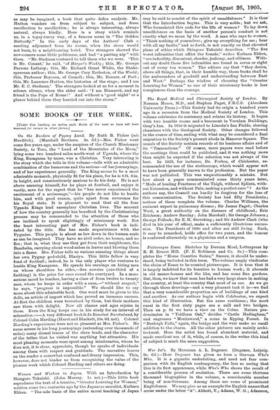may be said to consist of the spirit of unselfishness."
It is thus that the Introduction begins. This is very noble ; but we ask, Who formulated this code for the life of women ? To lay down unselfishness on the basis of another person's conduct is not exactly what we mean by the word. A man who says to women, "Think nothing of yourselves ; give up everything for me ; bear with all my faults," and so forth, is not exactly on that elevated plane of ethics which Shingero Takaishi describes. "The five worst infirmities that afflict the female," writes Kaibara Ekken, "are indocility, discontent, slander, jealousy, and silliness. With-' out any doubt these five infirmities are found in seven or eight out of every ten women." The editors say that "they desire, ' above all things, that, in their humble way, these books shall be the ambassadors of goodwill and understanding between East• and West." Perhaps the wisdom of choosing the "Greater Learning for Women" as one of their missionary books is less conspicuous than the courage.


































 Previous page
Previous page